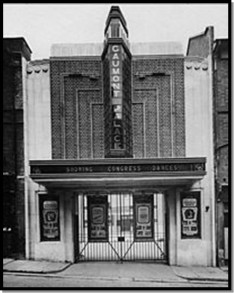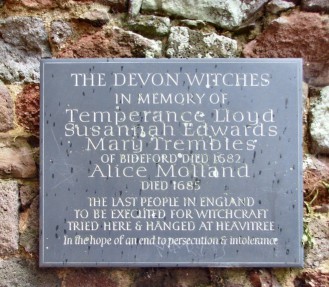
Exeter Local History Society
Exeter Local History Society members are hooked on history. If you share our fascination, why not join us? We have between 6 and 12 lecture meetings a year (details below), plus we occasionally have long-distance outings, and we cover an incredibly diverse range of subjects from Roman remains to post-WW2 redevelopment.
Our regular monthly meetings at Leonardo Hotel Exeter are usually held on the second Thursday of a month. Full details of future walks and talks are given below.
The charge for each meeting is normally £5 (free to members). The annual membership fee is £15 (£20 for joint membership). If you sample a meeting and decide to join, the £5 cost will be deducted from your first annual fee. Walks and visits normally cost £5 p.p. for members and visitors alike.
We also produce six newsletters a year — how about we email you the most recent as a free taster? To request a copy just email us at:
And do check out this website and see for yourself the great selection of subjects with which we entertain our members. Just click on "Past Events" to explore our programme! Click on "How To Join Us" for an application form. Please fill out this form if you wish to stay updated on our events and receive newsletters.
We hope we will see you soon at one of our many events!
“Stairway to the Stars”
This is the story of cinemas in Devon during their 'golden age,' roughly from the 1920's to the 1960's
by Jon Bell on Thursday, 12 March 2026
at 7pm at Leonardo Hotel Exeter [Jurys Inn Exeter Hotel]
Jon Bell, an Exeter Redcoat Guide, will present this popular talk on the Golden Age of Cinema in Devon – focussing especially on Exeter.
This is the story of cinemas in Devon during their ‘golden age,’ roughly from the 1920’s to the 1960’s, with a bit of a glance at both earlier and later times.
The talk will take in the cinemas, the people who built them, the audiences and some of the films they went to see.
There is a song, of course!
Tickets for this event can be secured by following the link below. The event registration is free for the members of the Society; there is a very small (£5) fee for non-members.
Spellbound: Witchcraft in Exeter, 1558-1682
with Professor Mark Stoyle on Thursday, 9 April 2026
at 7pm at Leonardo Hotel Exeter [Jurys Inn Exeter Hotel]
The ancient city of Exeter is the last place in England where people are known to have been hanged for the supposed crime of witchcraft. The case of the three North Devon women who were executed here in 1682 - the so-called ‘Bideford Witches’ - is now deservedly well-known. Yet the fact that Exeter had a much longer history of witch-trials - and witch-executions - is usually forgotten. This talk tells the stories of some of the unfortunate men and women who were denounced to the city magistrates as witches between 1558 and 1670: the period during which the great majority of witch-prosecutions occurred. Tracing a series of cases from accusation to trial, to sentence - and sometimes all the way up to the gallows itself - the talk sheds powerful new light on occult belief in Tudor and Stuart Exeter, and on the dark, uneasy world of the urban ‘witch’.
Mark Stoyle is Professor of Early Modern History at the University of Southampton, and his research interests include witchcraft, Tudor rebellions, and the English Civil War. He has written many monographs and scholarly articles and his latest book - The Western Rising of 1549 - was published in paperback by Yale University Press in 2024. Mark has served on the council of the Royal Historical Society, on the advisory board of the Victoria County History, and on the editorial advisory panel of BBC History Magazine. He has also appeared on many radio and TV programmes.
Tickets for this event can be secured by following the link below. The event registration is free for the members of the Society; there is a very small (£5) fee for non-members.
Through the Windows of an Ordinary House: A History of England
with Dr Ian Mortimer on Thursday, 28 May 2026
at 7pm at Leonardo Hotel Exeter [Jurys Inn Exeter Hotel]
Our national history is a patchwork quilt of stories – the North in the Industrial Revolution, the London of Samuel Pepys’s diary, and so on. How would it look if it were written from one point of view? And what if that point of view were here in Devon, on the edge of Dartmoor?
Ian Mortimer has spent the last few years writing an experimental book, “Through the Windows of an Ordinary House - A History of England” showing how the national story differs hugely according to where you were living. He looks at how the history of England would have appeared to the people who lived in his house (and previous houses on the site) since Saxon times. It is hoped that the end result will be nothing less than ‘a glimpse of a thousand years’.
As a prelude to publication in September, this is an illustrated introduction to the house itself and the people who lived in it since the thirteenth century, together with a view of the origins of the settlement.
Tickets for this event can be secured by following the link below. The event registration is free for members of the Society; there is a very small (£5) fee for non-members.



